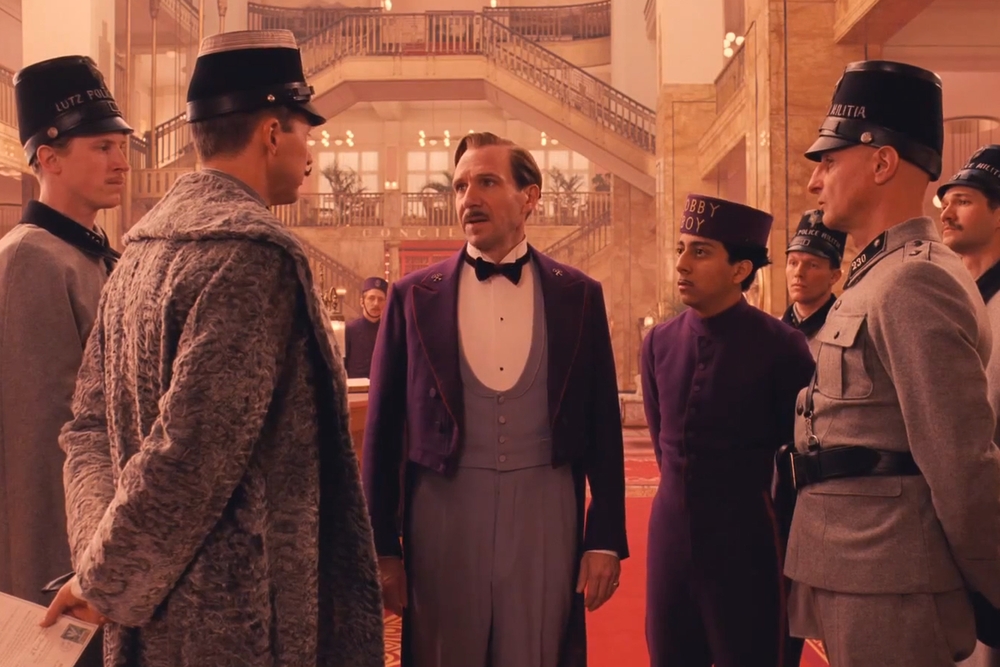Published
- 4 min read
The Grand Budapest Hotel: Cinematic Ode to Stefan Zweig Lost World

A Love Letter to Elegance and Eccentricity: Wes Anderson’s The Grand Budapest Hotel
In the world of modern cinema, few directors possess a visual and narrative style as instantly recognizable as Wes Anderson. The Grand Budapest Hotel (2014) is arguably his magnum opus—a film that encapsulates his love for symmetry, storytelling, and surreal charm, while delivering a surprisingly poignant message beneath its whimsical surface.
Inspired by Stefan Zweig’s Literary World
While The Grand Budapest Hotel is not a direct adaptation of a single novel, Wes Anderson has openly credited Austrian writer Stefan Zweig as the film’s primary inspiration. Zweig’s novellas and memoirs—especially Beware of Pity, The Post-Office Girl, and The World of Yesterday—heavily influenced the film’s tone, structure, and themes.
The character of Monsieur Gustave H. reflects the refined, cultured world Zweig often depicted: one of manners, ideals, and civility crumbling under the weight of historical tragedy. Likewise, the fictional Republic of Zubrowka and the hotel’s faded grandeur echo Zweig’s melancholic nostalgia for a vanished prewar Europe.
Anderson even dedicated the film to Zweig, acknowledging how the author’s exploration of memory, loss, and moral complexity shaped the story’s emotional core.
A Story Within a Story… Within a Story
Set in the fictional European nation of Zubrowka, the film takes viewers through layered timelines. We first meet a young writer (Jude Law) in the 1960s who interviews the elderly Zero Moustafa (F. Murray Abraham), the mysterious owner of the now-fading Grand Budapest Hotel. What unfolds is a flashback to Zero’s youthful days (played by Tony Revolori) as a lobby boy under the guidance of the legendary concierge, Monsieur Gustave H. (Ralph Fiennes).
The duo becomes embroiled in a caper involving a priceless painting (“Boy with Apple”), a wealthy deceased patron (Tilda Swinton in heavy makeup), and a sinister family feud led by the menacing Dmitri (Adrien Brody) and his hitman Jopling (Willem Dafoe). From alpine chases to a prison escape and cross-border conspiracies, the film bounces between genres, always with Anderson’s trademark flair.
Ralph Fiennes: A Revelation in Comedy
Ralph Fiennes delivers one of his finest performances as Gustave H.—a man of manners, poetry, and meticulous grooming standards. His comedic timing, emotional depth, and absurd eloquence elevate the film from quirky fun to something deeply moving. Whether he’s fleeing fascists or reciting romantic verses, Fiennes makes Gustave unforgettable.
Tony Revolori’s reserved and devoted Zero acts as the perfect contrast, and their mentor-protégé relationship becomes the emotional core of the story.
Visual Poetry and Nostalgic Grandeur
Wes Anderson’s visual style is in full bloom here: pastel color palettes, symmetrical framing, meticulous set design, and theatrical camera movements all contribute to a rich, almost storybook aesthetic. Every frame looks like a painting, with the Grand Budapest itself—once majestic, now faded—acting as a metaphor for lost time and lost values.
The use of different aspect ratios to reflect different eras adds another layer of artistry and helps the viewer navigate the film’s timelines with subtle clarity.
Themes: Behind the Whimsy
Beneath the film’s comic and playful exterior lies a surprisingly melancholic reflection on war, memory, and the erosion of civility. Set on the brink of a fictional war (evoking the rise of fascism in 1930s Europe), The Grand Budapest Hotel captures the tension between beauty and brutality, between elegance and authoritarianism.
It’s also a meditation on nostalgia—the longing for a time when things seemed more beautiful, more cultured, and more kind. Gustave represents that lost world. His unwavering standards, his belief in hospitality, and his poetic soul feel almost absurd in an increasingly harsh world. And yet, he persists.
A Supporting Cast of Legends
The ensemble cast is a gallery of Anderson regulars: Bill Murray, Edward Norton, Jeff Goldblum, Harvey Keitel, and Saoirse Ronan all leave their mark. Even in brief appearances, each character feels fully realized, adding texture and humor to the unfolding drama.
Final Thoughts
The Grand Budapest Hotel is more than just a visual delight—it’s a cinematic experience that entertains while quietly breaking your heart. It’s a rare film that can make you laugh with absurdity and cry with subtlety, all while being stunning to look at.
Wes Anderson has created a world unto itself—a world of pink pastries, lobby boy uniforms, hidden compartments, and fading grandeur. It’s a love letter to storytelling, memory, and the fight to remain kind in an unkind world.
⭐ Verdict: 5/5
A must-watch for anyone who loves clever filmmaking, layered storytelling, and the beauty of the absurd—with a deep literary soul drawn straight from Stefan Zweig.